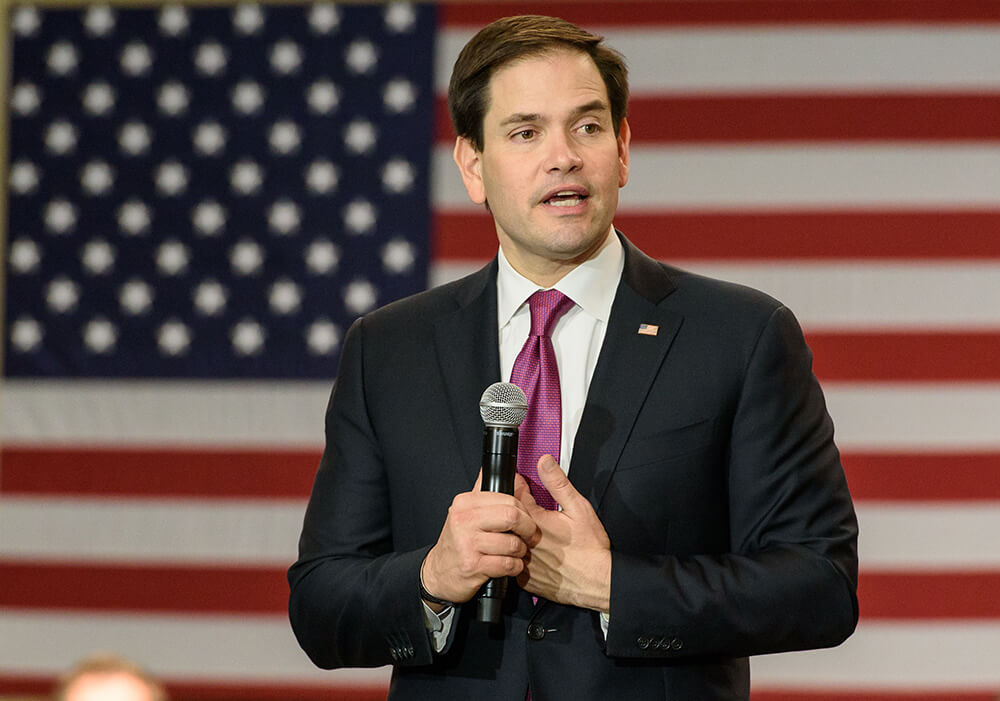|
Getting your Trinity Audio player ready...
|
Secretary of State Marco Rubio is set to make his first trip abroad next week, which will include a stop in Panama amid rising tensions over President Donald Trump’s vow to take back the Panama Canal.
“China is operating the Panama Canal. And we didn’t give it to China. We gave it to Panama, and we’re taking it back,” Trump said during his inaugural speech.
Panamanian President José Raúl Mulino has denied that China is running the canal and stated it won’t be returned to the United States.
Tammy Bruce, department spokeswoman, said Rubio—a Florida Senator with Cuban roots—also planned to visit El Salvador, Guatemala, Costa Rica, and the Dominican Republic.
Bruce said the visit stemmed from Rubio’s interest in the region and his desire to strengthen ties with Central American countries, in particular to battle illegal immigration.
Rubio may have his work cut out during his visit to Panama as tensions over Trump’s comments have escalated.
During his confirmation hearing, Rubio characterized the Panamanian government as “very friendly to the United States and very cooperative.”
“We want that to continue,” he said.
One bright spot during the visit could include working with Panama to curtail mass migration.
Mulino campaigned on shutting down illegal immigration through Panama’s Darien Gap.
However, the focus on the Panama Canal could overshadow immigration talks.
Rubio noted during his hearing that Chinese companies controlling port facilities on both ends of the canal have been a concern for a decade.
During a 2017 trip to Panama, Rubio said he discussed China’s influence along the waterway, which is a choke point with military value. It’s a critical pathway for U.S. warships in both the Atlantic and Pacific.
Rubio said military and security officials in Panama said during his visit that Beijing could potentially use its commercial ports during a military conflict.
There are “no independent Chinese companies,” Rubio said. “They all exist because they’ve been identified as national champions. They’re supported by the Chinese government.”
The Chinese Communist Party (CCP) mandates that Chinese companies cooperate with state intelligence agencies.
China began to invest in Panama around 2016 and 2017, and the money had strings attached, Rubio said.
The China-based Landbridge struck a $900 million deal in 2016 to control Margarita Island, Panama’s largest port on the Atlantic side, to build a deepwater port.
In 2017, Panama signed on to China’s ambitious Belt and Road Initiative (BRI), dubbed a modern Silk Road, after publicly recognizing Taiwan as part of China, much to the surprise and concern of the United States.
That same year, a Chinese consortium headed by China Harbor Engineering Company (CHEC) and state-owned China Communications Construction Company (CCCC) was awarded a $1.4 billion contract for the canal’s fourth bridge.
The CCCC was involved in constructing China’s man-made islands in the disputed South China Sea.
Who Has De Facto Control?
This month, in an interview with The Associated Press, canal administrator Ricaurte Vásquez rejected claims that the canal was controlled by China while noting that American and Taiwanese businesses also operate ports along the canal.
The Panama Canal Authority manages the administration and maintenance of the waterway’s resources and security. It operates independently of the Panamanian government.
“I mean, that’s one of those things that is factual but not truthful,” said Joshua Trevino, a former vice president of policy at the Pacific Research Institute and current policy analyst for the Texas Public Policy Foundation.
The canal authority may technically control the waterway, but Chinese companies also have functional control over the ports and pay the bills, he told The Epoch Times.
“If you have the financial and operational control—which they do—the titular government is a lot less important than those two things,” he said.
Eva Fu, Ryan Morgan, and The Associated Press contributed to this report.





